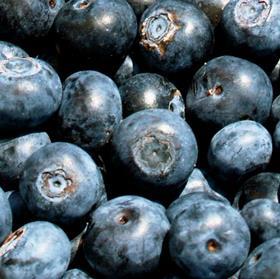
With the precision timing of a world-class athlete, scientists in New Zealand have scored a golden marketing victory with the publication of a new study showing that blueberry consumption can speed up post-exercise recovery rates.
No doubt released to coincide with the build-up to the London 2012 Olympics, the report suggested that athletes who eat blueberries – in this case grown in New Zealand – recover quicker from their exertions than those that do not.
Massey School of Sport and Exercise's head associate professor Steve Stannard, who worked on the study with other colleagues as well as members of the New Zealand Institute for Plant & Food Research, said the findings could help professional and amateur athletes return to full fitness quicker after exercise.
'We put the study participants on a Biodex machine and had them work the thigh of one leg very hard to damage the muscle,' Stannard told the Journal of the International Society of Sports Nutrition, which published the study's results. 'They did 300 maximal eccentric contractions, which causes micro-trauma to the muscle's fibres.'
In the first part of the study, the ten female participants participants were given blueberry smoothies before, during, and for two days after the exercise strength tests, and blood samples were taken to monitor the leg’s recovery.
Several weeks later, the exercise was repeated on the other leg, but a 'control' smoothie without blueberries, and therefore with a different polyphenol content, was consumed instead.
According to the report, tests carried out on the blood samples showed that eating the blueberries produced a higher level of antioxidant defence in the blood, despite the fact that they contained a similar amount of antioxidant content as the control.
In one particular measure of muscle performance, this was associated with an improved rate of recovery in the first 36 hours.
Superior content
Dr Stannard said it was not yet clear exactly why the blueberries helped. 'But it is probably linked to the superior anthocyanin content of the New Zealand blueberry fruit interacting with and assisting the body's natural antioxidant mechanisms,' he remarked.
The team used New Zealand blueberries in the study, sourced from the country's Northland region. 'For me the attraction of this study is that we're using a real food,' Stannard said. 'It's not a pill or a supplement; it's fruit, grown in New Zealand and available at any shop.'
Plant & Food Research scientist Dr Roger Hurst said the study was part of an ongoing collaboration with the Massey School of Sport and Exercise that will be carrying out further research into the potential benefits of blueberries for exercise.
'There is a huge amount of research still to be done. But this work is giving a wonderful indicator and we expect these exciting findings to further boost the desirability of New Zealand blueberries.'



